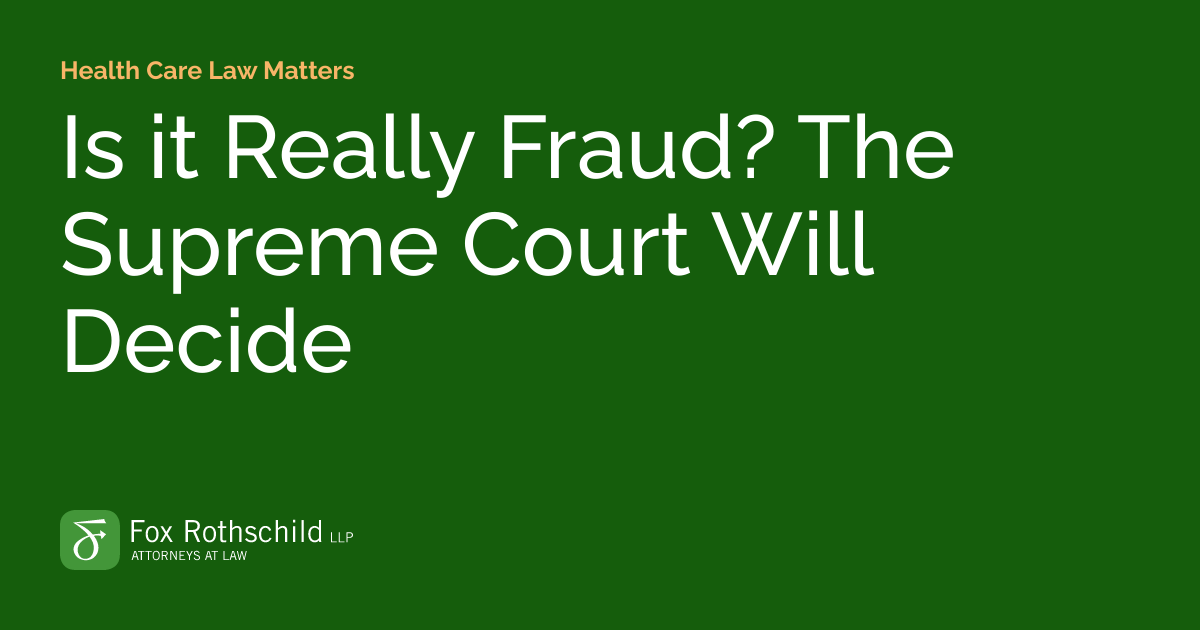Two landmark circumstances fraught with False Declare Act (“FCA”) allegations of fraudulent billing for pharmaceuticals towards meals and pharmacy chains are making their method from the Seventh Circuit to the Supreme Courtroom. The choice in every case will have an effect on what it means for a supplier to “know” that it’s violating the False Claims Act—a important aspect in proving legal responsibility underneath the legislation.”
Former pharmacists for SuperValu Inc. and Safeway Inc. blew the whistle on the retailers for allegedly failing to incorporate all out there reductions they supplied to retail clients within the “typical and customary” pricing they supplied to the federal government. But the circuit court docket considered the conduct otherwise, finally concluding that the retailers had made “objectively cheap” determinations of the pricing underneath an ambiguous regulation. And since the alleged misconduct mirrored cheap (albeit misguided) interpretations of compliance obligations, it declined the chance to inquire whether or not the “cheap” views have been held in good religion. Evidently, each the federal government and the whistleblowers weren’t joyful.
In inspecting the central difficulty of “scienter,” the court docket adopted the usual elucidated within the Supreme Courtroom’s 2007 Safeco Insurance coverage Co. of America v. Burr choice which mentioned the notion of scienter underneath the Truthful Credit score Reporting Act. As utilized there, the justices concluded that appearing underneath an incorrect interpretation of a statute or regulation the place such interpretation of an unclear rule was objectively cheap (and within the absence of “authoritative steerage” mandating towards such an interpretation), doesn’t quantity to the “data” or “reckless disregard” prerequisite to legal responsibility. Whether or not the Safeco commonplace ought to be utilized in FCA circumstances is a matter that continues to be extensive open.
So now, the Supreme Courtroom has granted certiorari to discover and resolve whether or not Safeco applies to the FCA and whether or not a defendant’s contemporaneous subjective understanding or beliefs concerning the lawfulness of its conduct is related as to whether it “knowingly” violated the FCA. This willpower highlights the important discovering crucial for the imposition of legal responsibility underneath the FCA which requires that the fraud happen knowingly or with “reckless disregard” or “deliberate ignorance” of the reality. The choice may have a profound impact on federal and state courts who’re more and more confronted with billing disputes and fraud claims towards suppliers.
If you need to understand how the Supreme Courtroom’s choice may influence your apply or facility, please contact Elizabeth Hampton at 609-895-6752 or [email protected].
